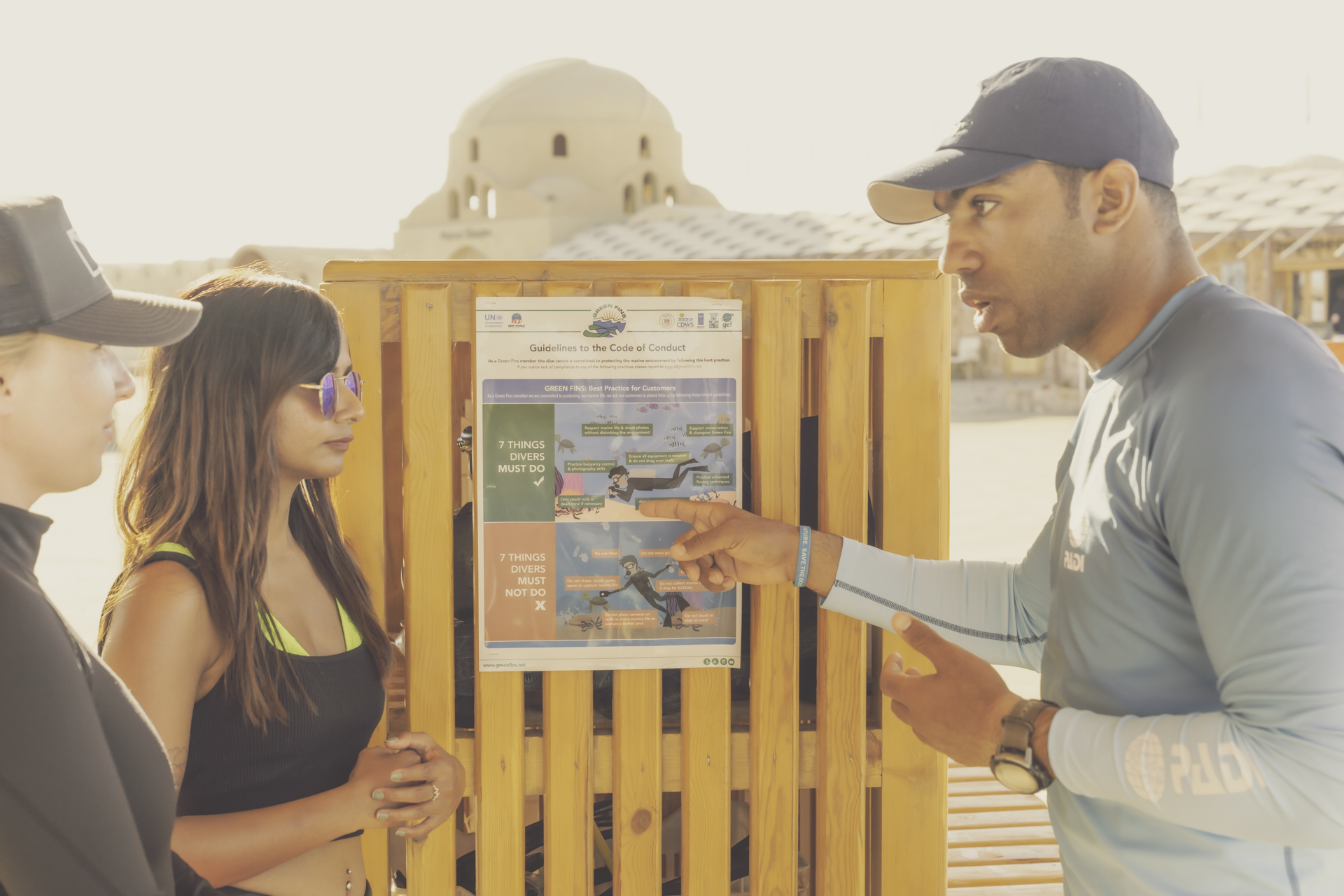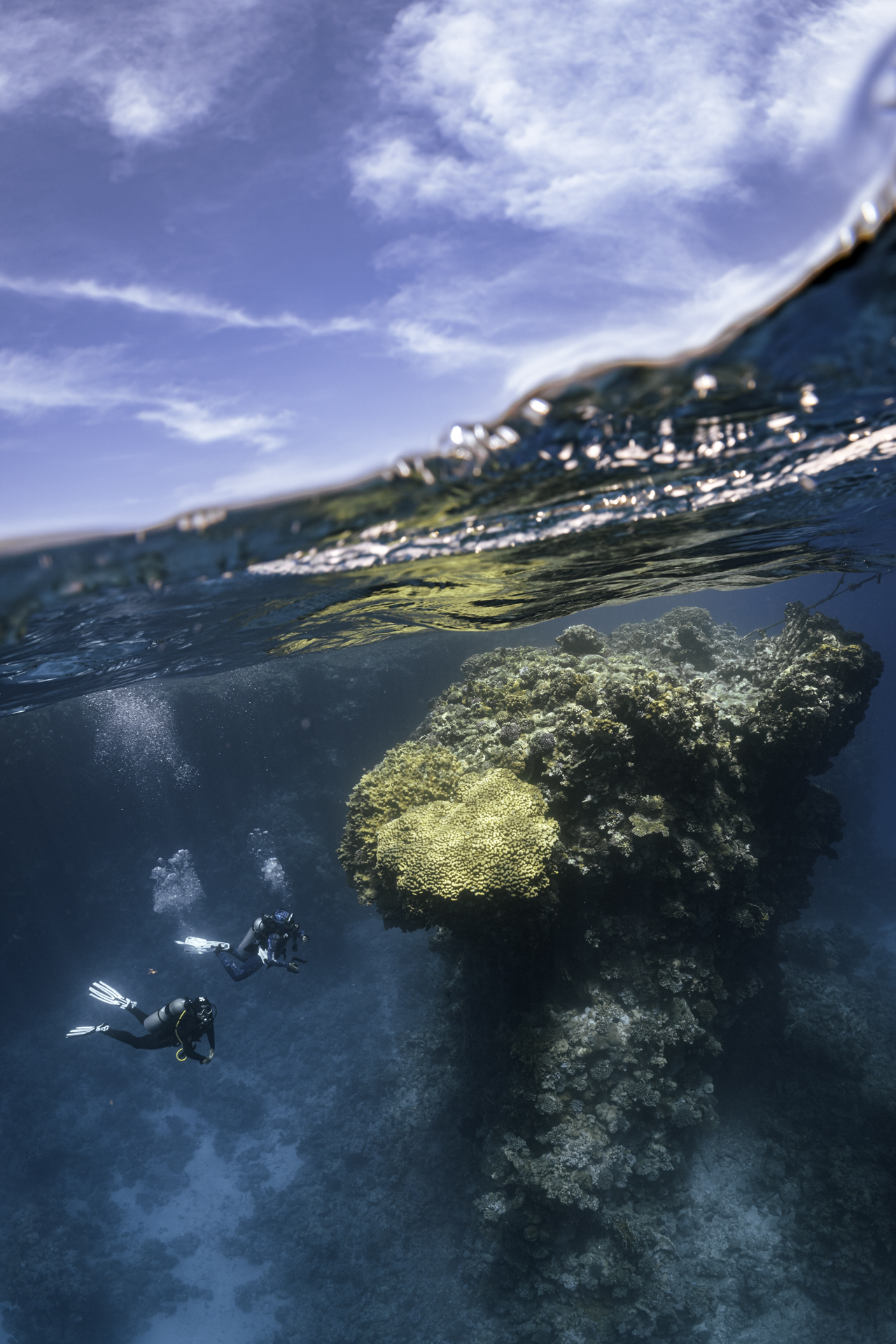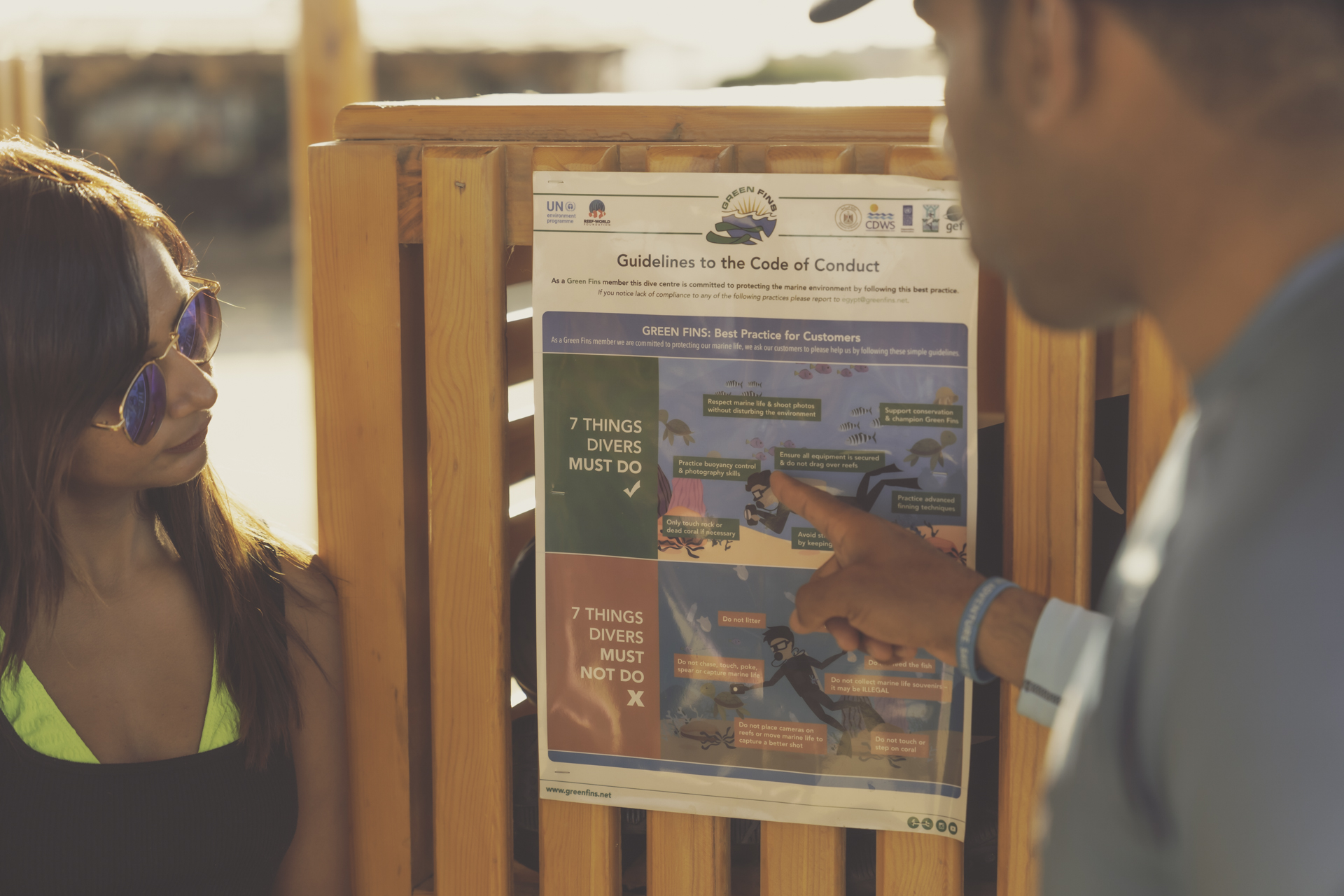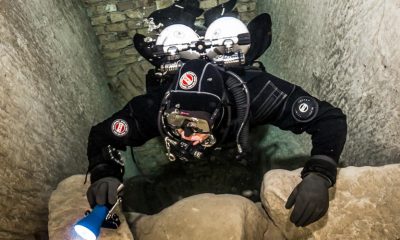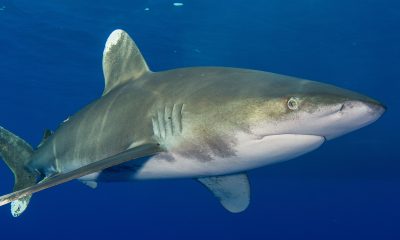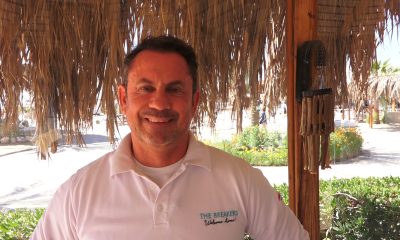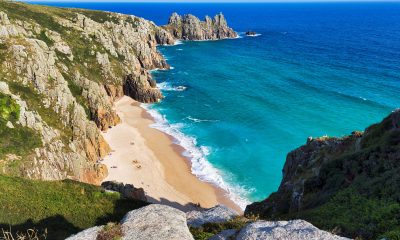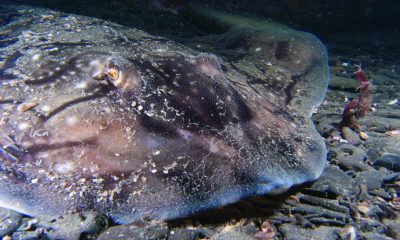Marine Life & Conservation
Introducing the first 11 PADI Eco Centres
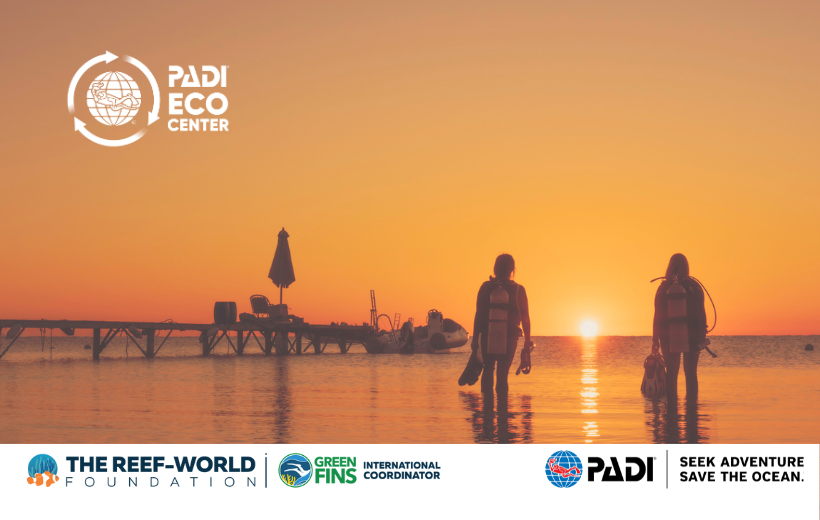
With Earth Day taking place tomorrow, PADI has announced verified PADI Eco Centres around the globe – the first of their kind.
Last year, PADI’s long-term partner, The Reef-World Foundation, released their study Sustainability in a Recovering Travel World, which found 95% of divers are looking for sustainable operators when booking a trip, but often struggle to book with confidence.
In response to this, PADI, with the full support of The Reef-World Foundation, has established PADI Eco Centres, a prestigious credential awarded to those who exhibit continued commitment to conservation efforts that support both the goals and objectives of the PADI Blueprint for Ocean Action and the global agenda to protect the ocean.
The PADI Eco Centre credentials designate members who exemplify environmental stewardship in their operations, with the ultimate goal is to connect ocean lovers with sustainability leaders in the dive industry through a rigorous verification that gives travelers the confidence that their tourism dollars are going to make a positive impact.
Julie Andersen, PADI’s Global Director of Brand comments: “PADI is committed to protecting 30% of the ocean by 2030, which is fueled by creating like-minded partnerships, mobilising our PADI Mission Hub Members, re-envisioning the way people travel and encouraging daily changes we all can make for a better – and healthier – planet, with PADI Eco-Centres being the catalyst for real change in the tourism sector.”
The robust PADI Eco Centre verification process is performed in conjunction with PADI’s partner The Reef-World Foundation and their United Nations Green Fins Initiative. Three sets of criteria must be achieved by PADI Members to demonstrate an exemplary level of environmental best practices above and beneath the surface.
Requiring approximately a year’s elapsed time to officially become verified, the process integrates the core values of conservation and sustainability across the entire PADI network.
PADI Eco Centres are not just advocating for positive ocean change, but they are actively leading the way forward to create a better future for our shared blue planet.
Wherever you find them, PADI Eco Centres reliably ensure that the cost of their marine adventure goes hand in hand with the protection and restoration of natural resources and the well-being of local communities.
Below are the first 11 PADI Eco Centres that have been hand-selected by PADI to represent the true ethos of the programme.
- Red Sea Diving Safaris | Egypt
With three villages along the southern Red Sea coastline in Marsa Alam, Red Sea Diving Safaris is one of Egypt’s leading environmental activists and pioneer of sustainable tourism development, offering scuba divers a chance to give back to local communities and coastlines.
- Dive Ninja Expeditions | Mexico
Marine research and conservation has always been at the heart of Dive Ninja Expeditions, who are focused on bridging the gaps between tourism, science and conservation in Baja, Mexico. From supporting the local community through a scholarship programme to conducting vital marine research, Dive Ninja Expeditions is creating opportunities for divers to connect, gain unique citizen science skillsets, and personally drive ocean change.
- Fifth Point Diving Centre | UK
Believing that every adventure can protect the ocean, Fifth Point Diving Centre offers scuba divers the chance to book eco-adventure holidays as well as empowering the younger generations of scuba divers and professionals to take the leading role in creating positive ocean change.
- Silent World | USA
Making every dive course or adventure memorable by integrating conservation efforts and minimizing crowds, Silent World in Key Largo makes saving the ocean and exploring beneath the surface stress free in the Florida Keys National Marine Sanctuary.
- Excel Scuba | Spain
Located in the Canary Islands, this PADI Eco Centre is committed to protecting the beautiful coastlines and offering internship programmes to the local community so they can not only change the course of their carreer opportunities, but also educate others about the importance of conservation.
- Ceningan | Indonesia
Recognized globally as one of the most eco-friendly dive resorts, Ceningan Divers have already won numerous industry sustainability awards and are ranked amongst the top three Green Fins operators in the world and operate in the Nusa Penida Marine Protected Area.
- Sea Voice Divers | Malaysia
Sea Voice Divers is a small but mighty PADI Eco Centre in Malaysia determined to represent the voices of the ocean by keeping their dive groups small, running numerous conservation programmes and encouraging all their customers and team members to obtain their AWARE Specialist certification.
- Scuba Elite | Bonaire
Committed to supporting their community, Scuba Elite supports educating and empowering both local youths and visitors in how to protect the coastline and coral reefs that are critical to the eco-system through their PADI Reef Renewal Specialty Course.
- Evolution | Philippines
Evolution is a small owner operated PADI Eco Centre located on Malapascua Island who are committed to not only taking guests beneath the surface to explore some of the best dive sites in the world, but equally ensuring that every dive is a Dive Against Debris dive.
- Scubacao Diving Adventures | Curacao
Not only is Scubacao Diving Adventures a great place to learn to dive on holiday, but offer divers the chance to give back to our shared blue planet through offering the PADI Reef Renewsl Spcialty and providing volunteer opportunities to protect the local coral reefs.
- Oceans Unlimited, Costa Rica
Located on the Pacific Coast side of Costa Rica, Oceans Unlimited is a PADI Eco Centre that works alongside local non-profit Marine Conservation Costa Rica to run a coral restoration programme in Quepos and provide both education and outreach opportunities to locals and visitors alike.
To further encourage everyone on the planet to join PADI in creating positive ocean change, the organisation has also launched the Save the Ocean Pledge this Earth Day.
Designed to unite ocean torchbearers who share a love for the blue and a desire to protect it for generations to come, the pledge is a commitment of five actions to take regardless of where in the world you are exploring.
To sign the Save the Ocean pledge, visit padi.com/conservation/save-the-ocean-pledge
Marine Life & Conservation
Leading UK-based shark conservation charity, the Shark Trust, is delighted to announce tour operator Diverse Travel as a Corporate Patron

 Corporate Patrons provide a valuable boost to the work of The Shark Trust. The Trust team works globally to safeguard the future of sharks, and their close cousins, the skates and rays, engaging with a global network of scientists, policymakers, conservation professionals, businesses and supporters to further shark conservation.
Corporate Patrons provide a valuable boost to the work of The Shark Trust. The Trust team works globally to safeguard the future of sharks, and their close cousins, the skates and rays, engaging with a global network of scientists, policymakers, conservation professionals, businesses and supporters to further shark conservation.
Specialist tour operator Diverse Travel has operated since 2014 and is committed to offering its guests high quality, sustainable scuba diving holidays worldwide. Working together with the Shark Trust will enable both organisations to widen engagement and encourage divers and snorkellers to actively get involved in shark conservation.
“Sharks are truly at the heart of every diver and at Diverse Travel, we absolutely share that passion. There is nothing like seeing a shark in the wild – it’s a moment that stays with you forever!” says Holly Bredin, Sales & Marketing Manager, Diverse Travel.
“We’re delighted to celebrate our 10th year of business by becoming a Corporate Patron of the Shark Trust. This is an exciting partnership for Diverse and our guests. We will be donating on behalf of every person who books a holiday with us to contribute towards their vital shark conservation initiatives around the world. We will also be working together with the Trust to inspire divers, snorkellers and other travellers to take an active role – at home and abroad – in citizen science projects and other activities.”
Paul Cox, CEO of The Shark Trust, said:
“It’s an exciting partnership and we’re thrilled to be working with Diverse Travel to enable more divers and travellers to get involved with sharks and shark conservation. Sharks face considerable conservation challenges but, through collaboration and collective action, we can secure a brighter future for sharks and their ocean home. This new partnership takes us one more valuable step towards that goal.”
For more information about the Shark Trust visit their website here.
For more about Diverse Travel click here.
Marine Life & Conservation
Shark Trust Asks Divers to help with Shark Sightings this Global Citizen Science Month

 Whether you are stuck for ideas of what to do with the kids or are off on the dive trip of your dreams. You can get involved in Citizen Science Month and help the Shark Trust by providing vital data about sharks are rays both close to home and further afield.
Whether you are stuck for ideas of what to do with the kids or are off on the dive trip of your dreams. You can get involved in Citizen Science Month and help the Shark Trust by providing vital data about sharks are rays both close to home and further afield.
In addition to reporting the sharks and rays you see on your dives, the eggcases you find on the beach, the Shark Trust is looking for some specific data from divers who are asked to report any Oceanic Whitetip and Basking Sharks.
Oceanic Whitetip Sharks
The Shark Trust are looking specifically for Oceanic Whitetip Shark sightings over the coming weeks and months. So, if you are diving anywhere in the world, please report your sightings via the website or app.
Website: https://recording.sharktrust.org/
App: Search The Shark Trust in your app store
The Oceanic Whitetip. Known for their incredibly long dorsal and pectoral fins, this species was once the most abundant oceanic-pelagic species of shark on the planet.
Large and stocky, they are grey or brown above, and white below and famous for their huge rounded first dorsal fin and paddle-like pectoral fins. The fins also highly prized within the shark fin trade. Whilst they are mostly solitary, Oceanic Whitetips do occasionally hunt in groups.
An inquisitive species, they were easy prey for fisheries. Combined with their low reproductive rate, they were inevitably at high risk of population depletion. And declines of up to 99% have been reported in certain sea areas. They are listed as Critically Endangered on the IUCN Redlist (2019).
Conservation efforts to discourage further declines include listing on CITES Appendix II and CMS Appendix I. They’re also the only species prohibited from take by all the Tuna RFMOs (Regional Fisheries Management Organisations). However, these measures do not mean that Oceanic Whitetips are not still caught – whether targeted or as bycatch – in some parts of the world. With populations declining at such a high rate, effective implementation of management measures is essential to ensure that the species can recover.
If you are lucky enough to get an image of an Oceanic Whitetip and you record your sighting on the Shark Trust app or website YOU CAN WIN! All images submitted with sightings, that also give consent to use in conservation messaging, will be in with a chance to win an Oceanic Whitetip T-shirt and mug. The competition will run until the end of “Shark Month” in July – so keep those sightings (and images) coming in.
Basking Sharks
Basking Shark (Cetorhinus maximus) season is upon us, and the Shark Trust is asking everyone to keep an eye out for these majestic giants over the summer months. If you see any, you can record your sighting to the Basking Shark Sightings database.
Each year, these mighty fish return to British waters to feed on plankton. You may see one, (or a few if you’re really lucky) from around April-October. They can be seen feeding at the surface of the water, where they look like they’re basking in the sun. Thus, their name!
Sighting hotspots around the British Isles include southwest England, Isle of Man, north coast of Ireland, and western Scotland. The Sea of the Hebrides is the most prolific sightings area in Scotland, but they have been spotted all around the coast and have even ventured into some of the sea lochs. The Shark Trust has received thousands of sightings since the Basking Shark project began, but more data is needed to truly understand what is going on with population numbers and distribution. You can help by recording your sightings this summer.
Great Eggcase Hunt
The Shark Trust has an Easter Egg Hunt with a difference for you to try. Take part in the Great Eggcase Hunt and get involved with a big citizen science project that helps shark, ray and skate conservation. And it’s an enjoyable activity for all the family.
The Shark Trust also want snorkellers and divers to record their underwater eggcase findings. Underwater records help pinpoint exactly where sharks and skates are laying their eggs and can help link to beach records. Learning the depth and substrate that they lay on also helps better understand the species.
Find out more: https://www.sharktrust.org/great-eggcase-hunt
Whether you are diving, snorkelling or exploring on the beach you can take part in Citizen Science Month and get actively involved in shark and ray conservation. Find out more: www.sharktrust.org
-

 News3 months ago
News3 months agoHone your underwater photography skills with Alphamarine Photography at Red Sea Diving Safari in March
-

 News2 months ago
News2 months agoCapturing Critters in Lembeh Underwater Photography Workshop 2024: Event Roundup
-

 Marine Life & Conservation Blogs2 months ago
Marine Life & Conservation Blogs2 months agoCreature Feature: Swell Sharks
-

 Blogs1 month ago
Blogs1 month agoMurex Resorts: Passport to Paradise!
-

 Gear News3 months ago
Gear News3 months agoBare X-Mission Drysuit: Ideal for Both Technical and Recreational Divers
-

 Gear Reviews2 months ago
Gear Reviews2 months agoGear Review: Oceanic+ Dive Housing for iPhone
-

 Blogs2 months ago
Blogs2 months agoDiver Discovering Whale Skeletons Beneath Ice Judged World’s Best Underwater Photograph
-
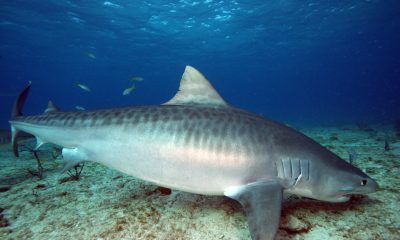
 Blogs3 months ago
Blogs3 months agoThe Thrilling Encounter with Tiger Sharks at Beqa Lagoon’s ‘The Colosseum’ with Coral Coast Divers


